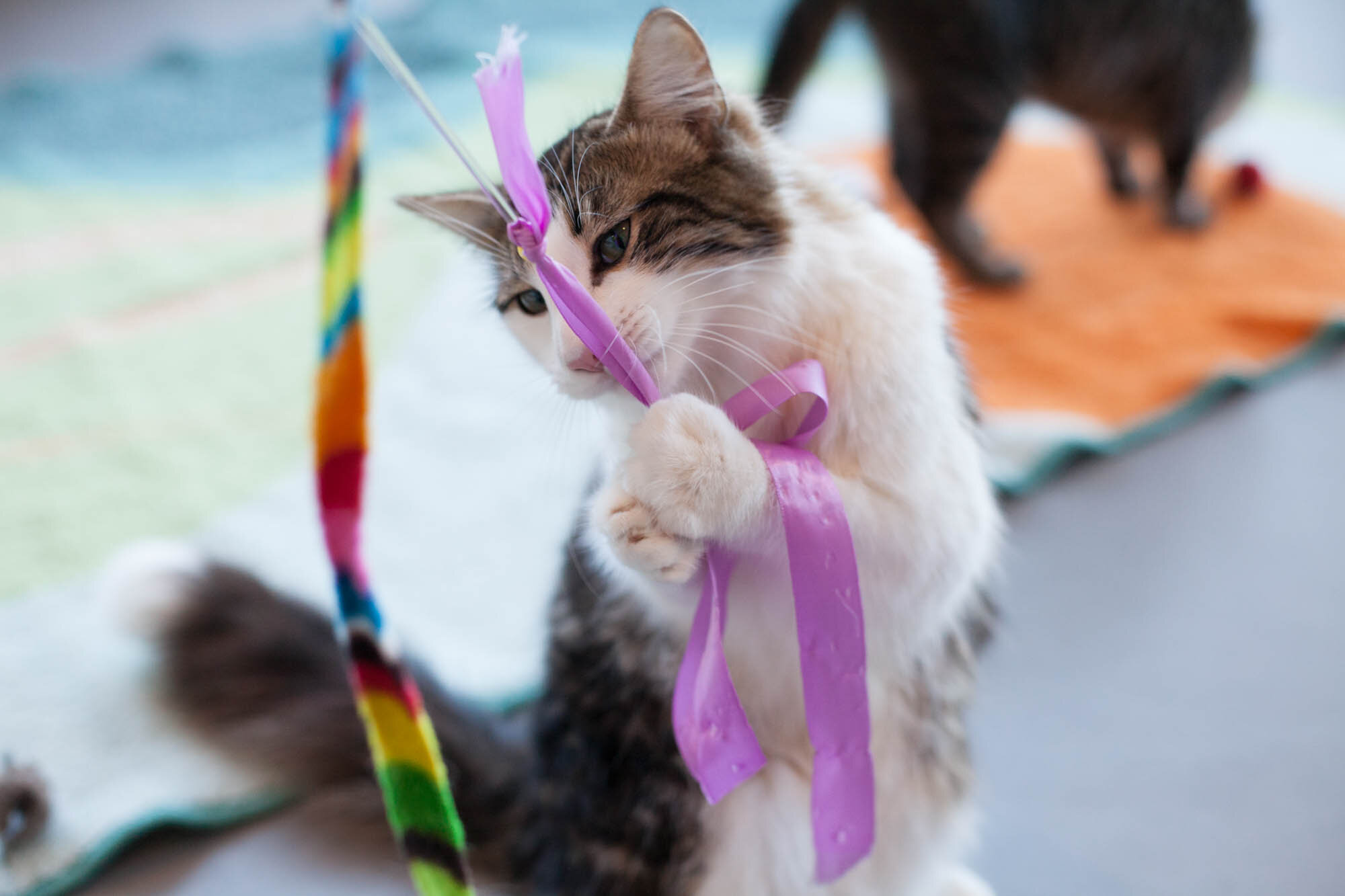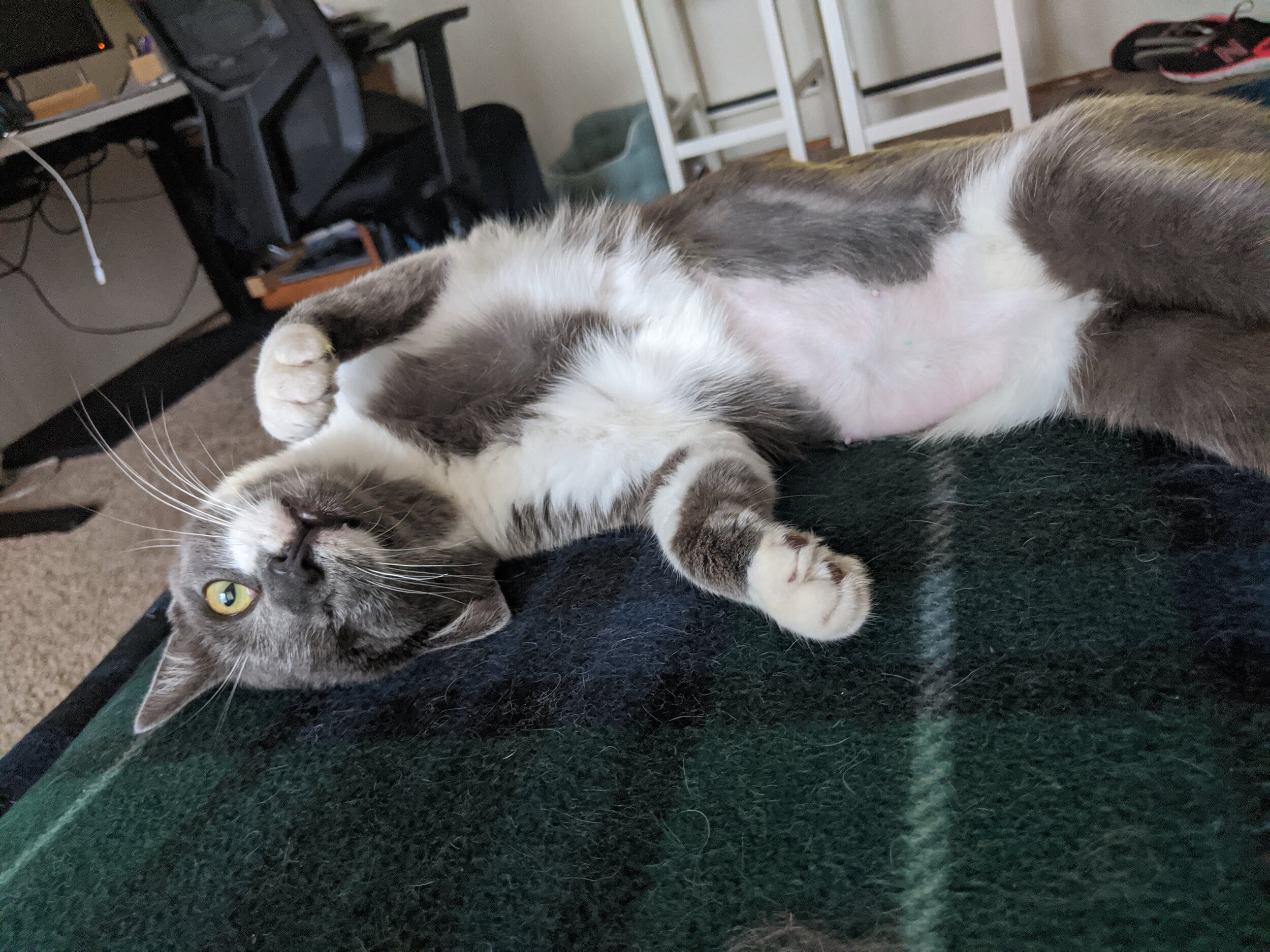When Meowing Goes from Cute to Excessive
Ever think your cat is trying to tell you something? They probably are! Some cats learn to use vocalization to communicate to humans that they’re happy, angry, hungry or want your attention.
Cats also vocalize to express discomfort or pain, agitation, and sometimes, territoriality. If your cat has not been neutered or spayed, they may yowl or meow in conjunction with sexual behavior. And some cats are simply more vocal than others, including certain breeds such as the Siamese.
“If meowing worked before, your cat will try harder for a few nights before they will give it up.”
Your cat may have learned to meow for good reason: if they meow, people will talk to them, play with them, feed them, or yell at them. Even negative attention is better than no attention for some cats!
If you adopted an adult cat who "talks" to you a lot, it may be a behavior that their previous person encouraged. Behavior patterns often start this way, and many people enjoy conversing with their cats! However, if your cat incessantly meows — especially at 3am — you can take steps to help change their behavior.
Behavior modification and a cat’s needs
If you’d like your cat’s constant meowing to stop, you’ll want to reward quiet or “good” behavior and not reward noisy or “bad” behavior. Pay attention to your cat when they’re being quiet; wait for a moment of silence before you feed them.
If meowing affects your sleep, try earplugs and close your bedroom door. You’ll have to be strict the first few nights, because if meowing worked before, your cat will try harder for a few nights before they will give it up. Providing alternative food and play options such as automatic feeders or food-dispensing and other interactive toys in other rooms can help.
Photo by Liz Lazich
Before you attempt to curb unwanted meowing behavior, it's important to make sure you're meeting your cat's needs for attention, interaction, and routine. Schedule daily playtime with your cat, including a lively session before bed. Follow the playtime with a late-night snack or small meal, which mimics their hunting patterns and can lead to grooming and resting.
Your cat needs mental and physical stimulation, preferably during morning and evening hours when they’re active. You probably know that indoor cats need to be entertained and encouraged to play and exercise, but cats with outdoor access also need attention and playtime with their person. Interactive play with new toys — handmade or store bought — works best. You can also help your cat play with their food using food puzzles.
Situations that call for a different response
Sometimes something else in your cat’s life is causing their excessive meowing, such as:
Grief
If your cat has recently lost a companion — feline, human, canine, or otherwise — they may be grieving, which can include meowing around the house, perhaps in search of their companion, or reacting to the change. You don't want to reward the meowing, but your cat needs extra reassurance. Spend quality time, preferably on a schedule, until they adjust to the loss.
A new or changed environment
If you change your cat’s routine, there’s a good chance they’ll meow excessively! If your adult cat is new to your home or just moved to a new home with you, it’s normal for them to be disoriented and unsure. A gradual introduction to the house may help them feel less overwhelmed. Again, don't reward the meowing, but be patient as this behavior usually takes a few weeks to resolve. There may be other environmental changes bothering them, such as a new stray cat coming by your back door. If you can’t find a cause, consider contacting a vet or behavioral specialist.
Medical Issues
If your normally quiet cat has become very vocal, schedule a visit to the vet to make sure there is nothing medically wrong. If your cat is getting older, they may also be going deaf or displaying cognitive dysfunction.
There are many reasons why your cat might meow too much, and there are many possible solutions. You may need to be a bit of a detective, but by meeting their needs and understanding their possible causes of distress, you can enjoy your cat’s companionship and peace and quiet!


